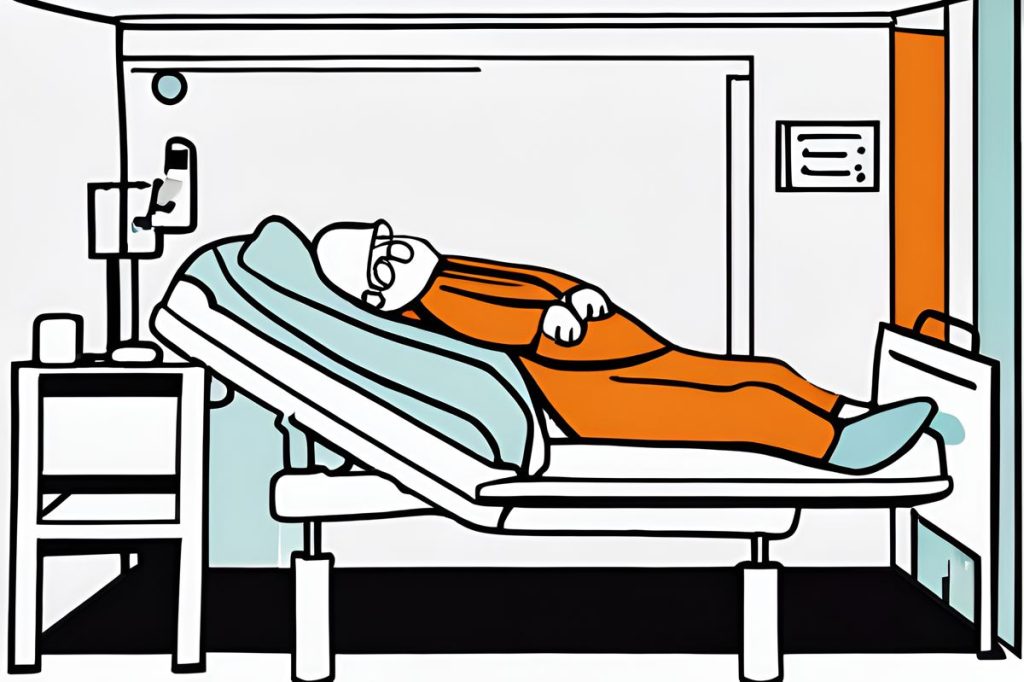Elderly patients are staying too long in hospitals in Cyprus due to a lack of post-hospitalization care options and families’ hesitancy to transition them to specialized facilities. This strains healthcare resources, causes bed shortages, and delays treatment for other patients, leading to a growing crisis in the country’s healthcare system.
Why are elderly patients overstaying in hospitals in Cyprus?
Elderly patients in Cyprus are overstaying in hospitals due to inadequate post-hospitalization care infrastructure and families’ reluctance to transition them to specialized facilities. This strains healthcare resources, causes bed occupancy issues, and leads to treatment delays for other patients.
The HIO’s Elderly Care Challenge
The Health Insurance Organization (HIO) of Cyprus has raised an alarm about the ongoing healthcare crisis related to the prolonged hospital stays of elderly patients. The lack of adequate infrastructure for post-hospitalization care for the aging population is threatening the efficiency of the country’s healthcare system. In a recent report, the HIO highlighted the dire need for specialized care facilities that can accommodate elderly patients once they are ready to be discharged from the hospital.
The issue at hand is not just about the availability of care homes or private residences for the elderly. It’s also about the readiness and willingness of families to transition their loved ones to such facilities. As a result, hospitals linked to the national health scheme, Gesy, are experiencing operational challenges. Beds intended for new patients are occupied longer than necessary, leading to a bottleneck effect that delays admissions and treatments for others who need care.
The Strain on Hospital Operations
The impact of this problem is most acutely felt in public hospitals managed by the State Health Services Organization (Okypy). Here, the average hospital stay is around five days – notably longer than the two-and-a-half-day stays typically observed in private hospitals and clinics. This discrepancy underscores the systemic issues within public healthcare institutions, where bed occupancy is not optimized, and resources are stretched thin due to the provision of services that fall outside the expected hospital care protocols.
Local media reports have highlighted discussions within the HIO to address this growing concern. Proposals have included the idea of implementing charges for patients who remain in the hospital beyond the discharge date prescribed by their attending physician. Such a measure would be intended to encourage families to seek alternative care solutions more rapidly. Nevertheless, the HIO has clarified that they neither possess the authority to impose such charges nor do they align with their organizational principles and directives.
Solutions on the Horizon?
The HIO, alongside the health ministry, recognizes the urgency of the situation and is actively seeking remedies. Continuous dialogue indicates that solutions are being sought to mitigate the overstay of patients, especially in the public hospital sector. It’s acknowledged that improving the infrastructure for elderly care is not just a matter of healthcare policy but also one of socioeconomic importance, demanding a multifaceted approach that includes stakeholders from various sectors.
A Collaborative Effort Required
To tackle the challenges posed by an aging population and the consequent strain on healthcare services, a combined effort is essential. This would involve enhancing the capacity and capabilities of care facilities, streamlining processes for transitioning patients from hospital to home or other care settings, and providing support to families navigating the complexities of eldercare. The government, healthcare providers, and the community at large must work together to create sustainable solutions that respect the dignity of the elderly while ensuring the healthcare system can serve the needs of all citizens effectively.
Why are elderly patients overstaying in hospitals in Cyprus?
Elderly patients in Cyprus are overstaying in hospitals due to inadequate post-hospitalization care infrastructure and families’ reluctance to transition them to specialized facilities. This strains healthcare resources, causes bed occupancy issues, and leads to treatment delays for other patients.
What is the impact of elderly patients overstaying in hospitals on Cyprus healthcare?
The impact of elderly patients overstaying in hospitals in Cyprus includes bed shortages, strained healthcare resources, and delays in treatment for other patients. This situation has led to a growing crisis in the country’s healthcare system.
What is the Health Insurance Organization (HIO) doing to address this issue?
The Health Insurance Organization (HIO) of Cyprus has raised an alarm about the ongoing healthcare crisis related to the prolonged hospital stays of elderly patients. The HIO is actively seeking solutions to mitigate the overstay of patients, especially in the public hospital sector, and recognizes the urgent need for specialized care facilities for the aging population.
What collaborative efforts are required to solve the problem of elderly patients overstaying in hospitals in Cyprus?
To address the challenges posed by elderly patients overstaying in hospitals in Cyprus, a combined effort is essential. This would involve enhancing the capacity and capabilities of care facilities, streamlining processes for transitioning patients from hospital to home or other care settings, and providing support to families navigating the complexities of eldercare. The government, healthcare providers, and the community at large must work together to create sustainable solutions.

